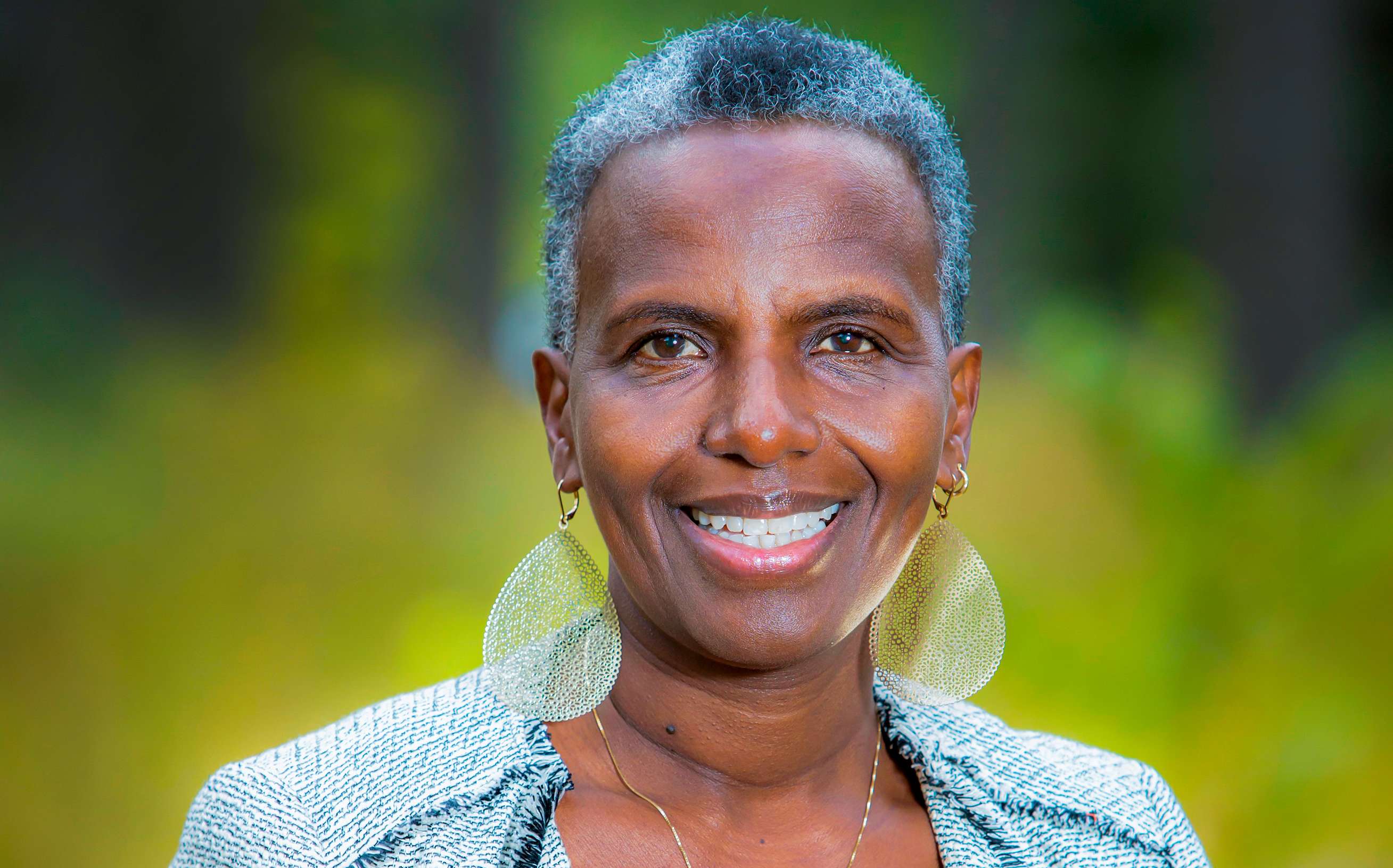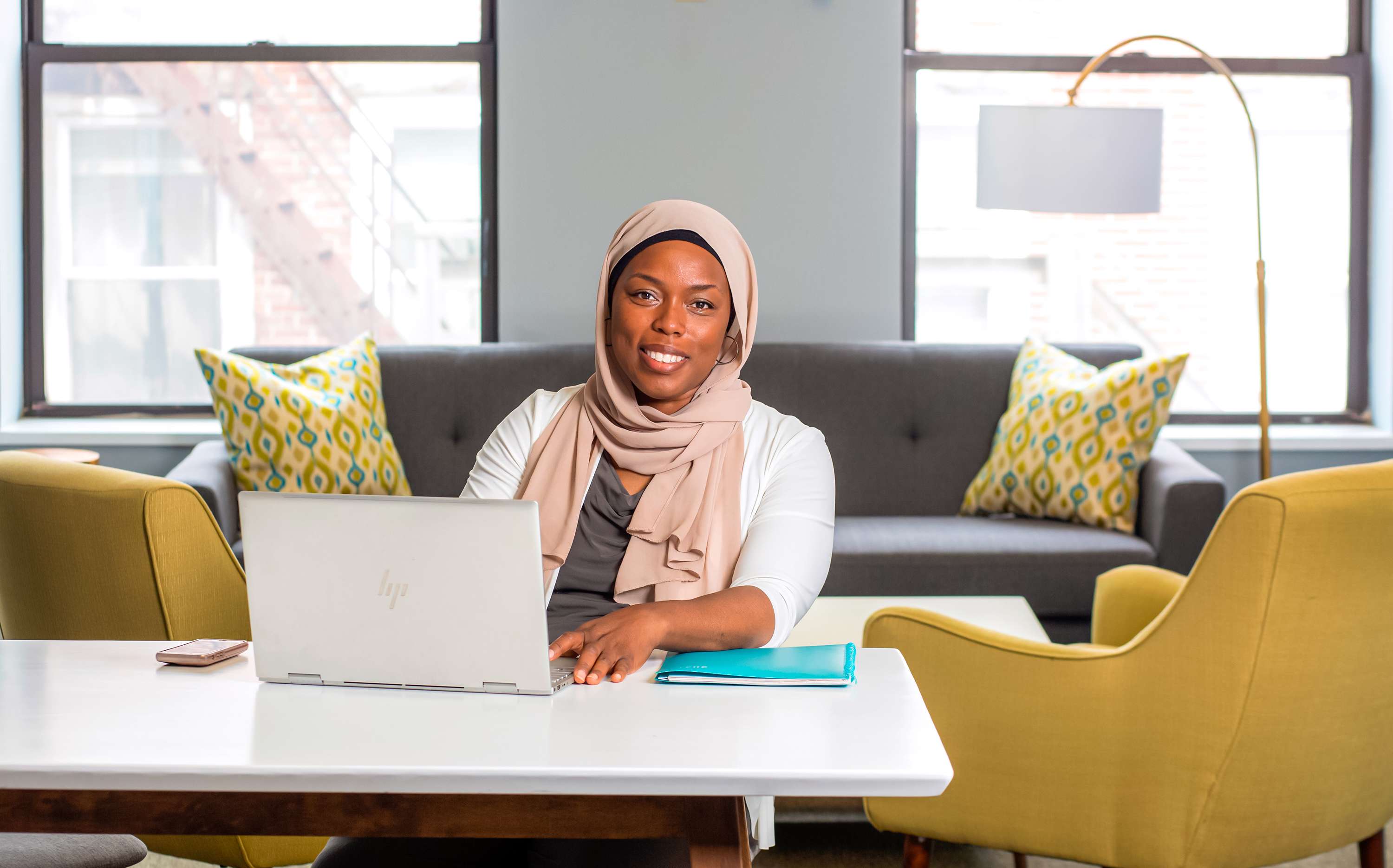
Nonprofits emerge from diverse cultures to fill gaps in communities

On the eve of the pandemic in March 2020, Presente Maine launched a “food brigade” to provide rations of beans, rice and vegetables to a few dozen Latinx, Black, Indigenous, Asian and other communities of color that are disproportionately low-income.
The group knew families were facing the hard choice of whether to work to feed their families or to quarantine and be cautious about COVID-19. To ease that burden, the food brigade dropped food staples on doorsteps in low-income communities.
It has since grown, providing food in Portland and Lewiston to about 500 households a week, with hundreds more on a waiting list, according to its interim report on the pandemic.
Nonprofits serving people of color and diverse populations are emerging in Maine to help communities of color and low-income communities tackle issues such as hunger, education, job training and mentorships.
Many nonprofit founders emerged from the communities they serve because they say they are best placed to understand the needs and better meet the needs. They live and breathe issues of diversity, equity and inclusion every day.
“We must be for each other if no one else will be for us. We meet the needs,” Presente Maine says in its report.
“In the nonprofit sector nationally, the conversation around diversity, equity and inclusion is definitely a bigger conversation than it was 10 years ago,” says Jennifer Hutchins, executive director of the Maine Association of Nonprofits. “Maine, in general, in the last 10 years has seen an increased focus on immigrant issues.”
Some new efforts have been launched, such as Presente Maine’s food brigade, while other existing nonprofits, like Good Shepherd Food Bank, expanded to create new roles and services to better address diversity issues.
“Mainstream organizations may have the resources and staff, but they are missing effective outreach and have problems meeting the actual needs,” says Claudette Ndayininahaze, executive director and co-founder of In Her Presence, which works with immigrant women to improve language skills, career opportunities and financial stability. “Being in the same pathway and place in life is important because we know how to reach these people who are struggling like me.”
‘Gut check’ moment helped spark effort
Good Shepherd recently created a new position, headed by Megan Taft, director of equity, diversity and inclusion, who will be adding staff to support her in identifying resources, vendors and volunteers to help aid underserved communities.
“We can’t end hunger in Maine without centering on diversity,” Taft says. “Black households in Maine are three times as likely to experience hunger and poverty as white households.”
The pandemic, as well as the deaths of George Floyd, Ahmaud Arbery and Breonna Taylor led to national conversations and a wakeup call on the state level that there may be some shortfalls, Taft says.
Good Shepherd saw it had room to improve its diversity efforts when it realized that people who worked for the food bank were hungry themselves.
“That was a big gut-check. We can’t have hunger within our own walls as a food bank,” Taft says.
Good Shepherd raised its minimum wage to $17 and began looking at sourcing food from different providers to get culturally relevant foods for different immigrant, refugee or tribal populations.
“Understanding who is hungry and ending racism has to start within,” Taft says. “That’s training and education and extending support work across our 500 partners. Everything we do has to go through an EDI (equity, diversity and inclusion) lens,” Taft says.
“Some of the pitfalls are that lots of organizations understaffed diversity roles or the issue fades away from importance,” Taft says.
Mufalo Chitam, executive director of the Maine Immigrants’ Rights Coalition, echoed the sentiments that diversity, equity and inclusion efforts need to be at the forefront of priorities and help guide decisions or the efforts often become stale or forgotten.
“DEI work has to be more than lip-service at a company or organization. It needs to be embedded in decisions from the top down and become a living, breathing part of a culture,” Chitam says. “Hiring one person and checking a box and saying we’re doing DEI training and whatnot — that’s just a drop in the ocean.”
“You cannot have one person of color do the lifting for a whole business or group to qualify as DEI work. The burden all the time comes to the persons of color. It should not be a thought or a question. It should be a lifestyle,” Chitam says.
Beyond hiring people of color, the nonprofit world can help do things that companies may be unaware of or lack the resources to handle, such as teaching languages, literacy, and financial literacy, Chitam says.
“Nonprofits work on the human level. There’s more pressure to take care of family and community. Nonprofits can connect the people and provide support systems that a business may not realize is needed or be equipped to offer,” Chitam says. “For us, it is second nature because we live it.”

Building coalitions
In Her Presence’s Ndayininahaze says a lot of companies and leaders talk about diversity and inclusion, but fail to act.
“How do we shift the culture in Maine? People are afraid of changing it or disrupting what is there,” she says. “To really create equity, we need to build together. If we are isolated, we are not really moving. Movement comes from coalitions,” Ndayininahaze says.
In Her Presence says it has partnered with Hannaford Supermarkets and Allagash Brewing Co. to hire immigrant women. The companies list positions they have available and the nonprofit identifies women leaders in the community who may be good candidates.
In Her Presence then helps the job candidates with the application process, interviews and training by providing translation services and meeting with the companies and candidates to smooth over any issues about the job or cultures that will mix. In Her Presence has helped more than a dozen immigrant women get jobs.
“We hope this will inspire other businesses to follow and provide paths for growth for those in our community,” she says. “This group and this effort exists because it is within us and it’s our passion and our community.”
Adilah Muhammad, president and founder of the Third Place, founded in 2017, wanted to create a place where people of color could share ideas, work and become a community. Since its founding, the Portland nonprofit has supported 10 emerging businesses and nonprofits with its office space, training, social and professional development and community of peers.
The group also has organized statewide sector groups in areas such as law, health and wellness, conservation and education where professional people of color can meet others with similar backgrounds or needs or interests to lift each other up, Muhammad says.
“We want to raise awareness of who’s here, how is the quality of their lives and bridge the gaps that are missing between work, home and community life,” Muhammad says.
Expanding the opportunities for people of color is more than just hiring a few diverse candidates, but focusing on how to retain them and to promote them, Muhammad says.
“Connections are very essential to grounding people in the community. People from dynamic, urban areas are hard to attract and retain if they don’t have connectedness,” Muhammad says.
Nonprofit groups can fill in those gaps. “People of color come to Maine for as many different reasons as there are people. Nonprofits can provide a community for them. It’s not the role of a workplace. Nonprofits can fill in the gaps and connect home and work and provide community space,” Muhammad says.
“No amount of DEI training can make up for being with people in their communities and truly understanding them,” Muhammad says. “It’s all theoretical until you meet someone in the community and apply what you learned.”
Mainebiz web partners
We all have to recognize that our new neighbors are a WORKforce multiplier. We need to replenish Maine's workforce in every town and county by attracting and retaining new residents. More than bringing new ideas, vitality and perspectives, new Americans are bringing with them skills and advanced degrees Maine desperately needs. That's just one reason MEMIC has been directing resources to organizations that are directly helping with language skills, job training, credentialing and education. We're lucky that so many have chosen Maine as their new home. - Tony Payne, SVP/External Affairs










1 Comments